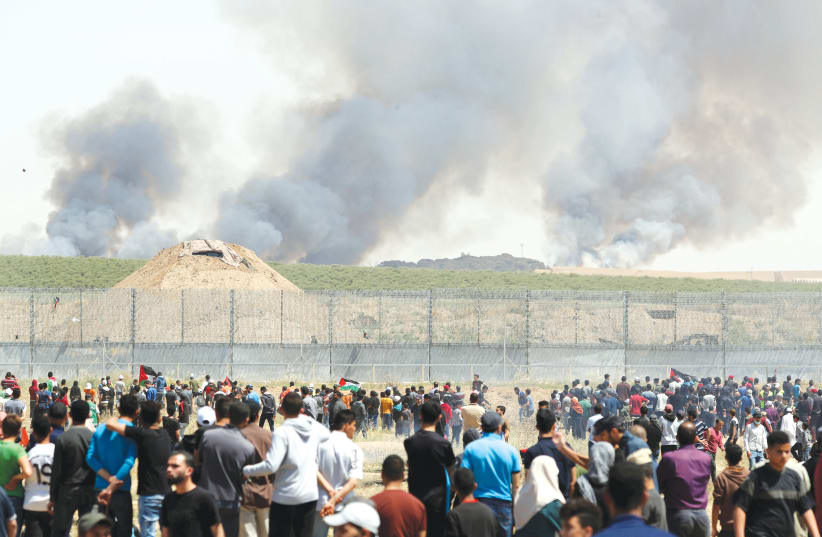Historically in violent conflicts, ceasefires only succeeded if they contained two important supporting elements. A robust, on-the-ground observation team to ensure both sides’ compliance, and, more importantly, a serious political track aimed at addressing the various reasons that caused the eruption of the violence in the first place.
In the Palestinian-Israeli experience, the overwhelming military power of Israel, and its arrogance in believing that it is the only democracy in the region, have led to the repeated refusal by Israel to have any neutral observers on the ground. The only exception to this occurred a quarter century ago, when an Israeli soldier, named Baruch Goldstein, entered al-Ibrahimi Mosque in Hebron and gunned down 29 Palestinian worshipers in the early hours of February 25, 1994. At that time, Israel’s prime minister Yitzhak Rabin agreed to the presence of unarmed international observers in the center of the city of Hebron, where tensions were the greatest between the militant Jewish settlers and the local Palestinian population.
At that time, half a year after the White House signing of the Palestinian-Israeli Declaration of Principles, Rabin was involved in serious negotiations with Palestinians, including on long-term political solutions for Hebron and the rest of the occupied territories.
ON FEBRUARY 1 of this year, the settler-dominated government of Prime Minister Benjamin Netanyahu ordered the Temporary International Presence in Hebron to leave.
With Netanyahu abhorring and rejecting the idea of international presence in Palestine, at least what can help bolster the ceasefire could be a political process. Not only does Israel totally reject dealing with Izzadin al-Qassam Brigades, the military wing of Hamas, which it considers a terrorist organization, but it also refuses to recognize the political wing of Hamas. In the Palestinian parliamentary elections of 2006, pro-Hamas Reform and Change list won the majority of the seats of the Palestinian Legislative Council. Ismail Haniyeh, head of the list, was appointed as prime minister, but Israel and many Western powers refused to recognize the freely-elected prime minister, and worked tirelessly to prevent them from ruling.
Today, 13 years later, not only is Hamas ruling the Gaza Strip after ousting the pro-Palestine Liberation Organization presidential guards from Gaza in 2007, but it also appears to be able to cause injury to persons and property in Israel, without the Israelis being able to militarily stop it completely, although Israel has done much greater damage to life and property in Gaza.
In light of the absence of Israel’s acceptance of observers and the absence of a political process, the ceasefire is now held on thin grounds, namely improving living conditions. Hamas negotiators, working through their Egyptian counterparts, have insisted on a series of demands aimed at lessening the decade-long siege that Israel has placed on the Gaza Strip. Ironically, a similar commitment was made in the last round by Israel, but according to Hamas, the Israelis have reneged on fulfilling what they committed to the Egyptian.
After a violent three days of hundreds of Israeli air raids and Palestinian rockets, the Egyptians did extract from both sides a new ceasefire, with a renewed Israeli commitment to fulfill promises made in the previous round. Ironically, Israeli army officials are pushing hard to convince Israeli cabinet members of the need for a parallel political track to the military one. Even Israeli military officials are convinced that not all problems can be solved with military solutions. Even the powerful Israeli military understands the limits of its own power if it is asked to ensure calm to areas bordering the occupied Gaza Strip.
The latest round of violence, once again, points out the absolute need for a major political solution that takes into consideration Palestinian aspiration and desire to live in peace, but also with freedom of movement and with a clear political horizon. Without such a necessary component, the current ceasefire might continue for a short time but is unlikely to replace a political process that aims at addressing the underlying problems in the protracted conflict.
The writer is director-general of Community Media Network.
